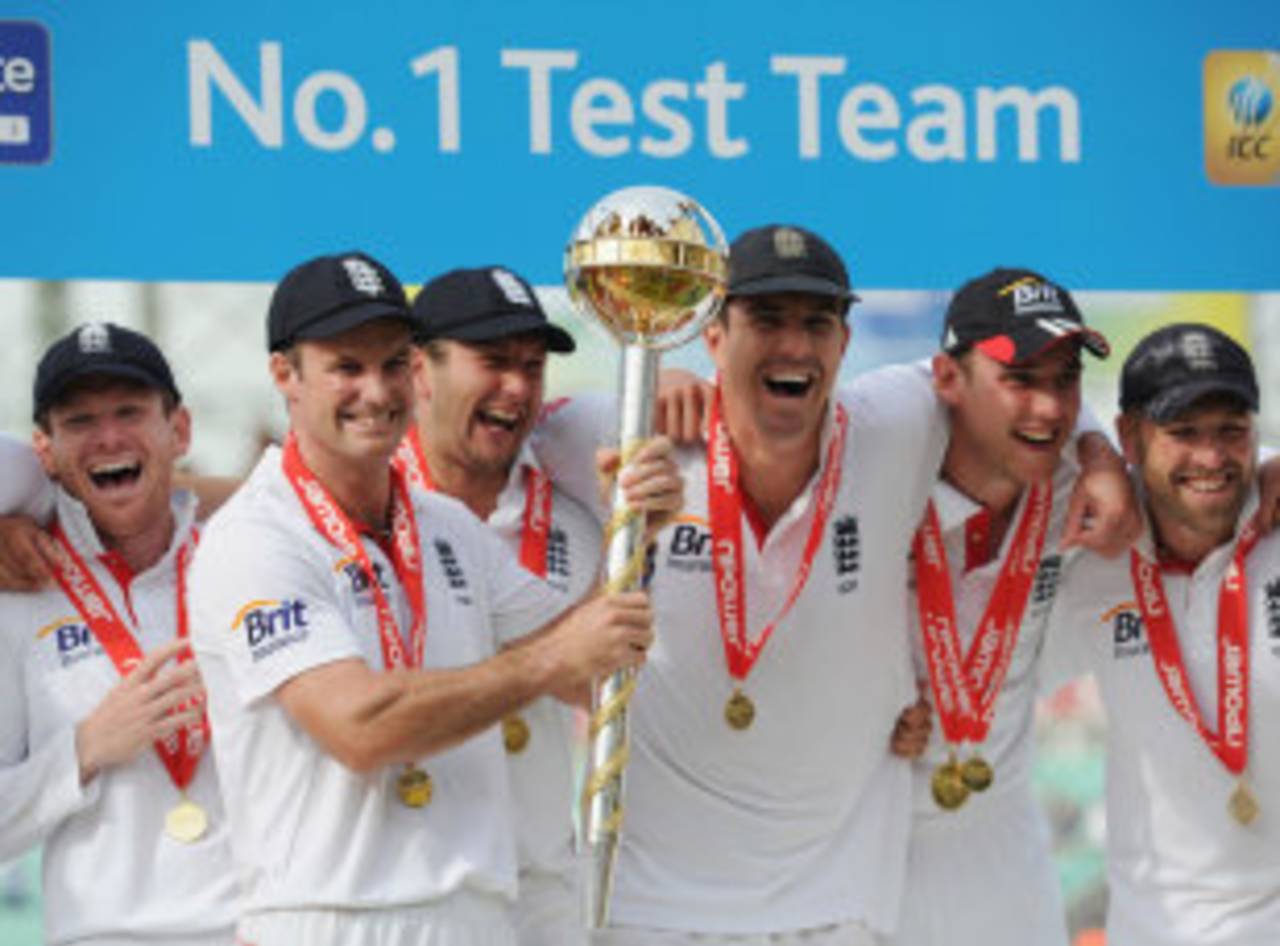Sky deal leaves few crumbs for frustrated fans
While the benefits of taking Sky's money are hard to argue with, some cricket lovers will feel let down by the ECB's all-or-nothing approach
David Hopps
Jan 31, 2012, 1:58 PM

England have become the world's No. 1 Test side with the aid of increased funding from TV rights • Getty Images
Even the most passionate critic of the ECB's decision to sell coverage of all England internationals to the highest bidder should recognise the benefits of the new TV rights deal. The debate is about whether these benefits are worthwhile.
England's Test grounds have changed beyond recognition, with rises in capacity, better facilities and vastly improved outfield drainage, which has reduced playing time lost for rain to a minimum.
This could not have been achieved without money from a rights deal. Even with it, many Test grounds must face up to a precarious financial position.
More than 45,000 coaches have qualified since the ECB's coach education programme, funded by Sky Sports, was launched five years ago, a figure that is triple the expectation. That, too, emphasises that TV money can be used for enlightened purposes.
The rights deal also includes a further commitment to the broadcasting of county cricket - and no free-to-air provider has shown the slightest enthusiasm to do that.
The support network around the England team has also helped to bring undeniable improvements with the Test side enjoying the rare satisfaction of being ranked No. 1 in the world.
The financial hardship facing many county clubs is well known. Predictions of at least one bankruptcy have yet to come to pass, but the 18 first-class counties are hugely dependent upon the annual ECB handout, now about £2 million a year.
The Morgan Review into the future of first-class cricket has once again revealed a county game at odds with itself, resorting to pragmatic, some may say half-baked, compromises. It is not a picture that invites confidence that the game could prosper without Sky's cash transfusion.
The ECB's decision cannot be divorced from economic realities. For all this, though, its total commitment to a pay-TV deal is disturbing.
It is fair to wonder whether England's network of coaches has now swollen to unsustainable levels. On the last Ashes tour, there were as many support staff as players. The same might be wondered about ECB bureaucracy, where there are too many examples of jobs for the boys. The deal is harder to justify if the money gained seems to be money for money's sake.
The highlights package, which is only an effective way to protect English cricket's interests if the programme is shown as soon as possible after the game has finished, has also been announced. The fact highlights will be broadcast in the early evening by Channel 5 is, then, a positive.
The ECB could, however, have shown more appetite for a separate internet highlights package to help spread a game that millions of cricket lovers now find unaffordable to watch.
Frustrated cricket viewers who cannot afford subscription TV could do worse than renew their relationships with their county clubs and broaden their horizons beyond the England side. But they will feel let down by the ECB's all-or-nothing approach. This is a good financial deal, but somewhere, somehow there should have been some peace offerings around the edges.
David Hopps is the UK editor of ESPNcricinfo